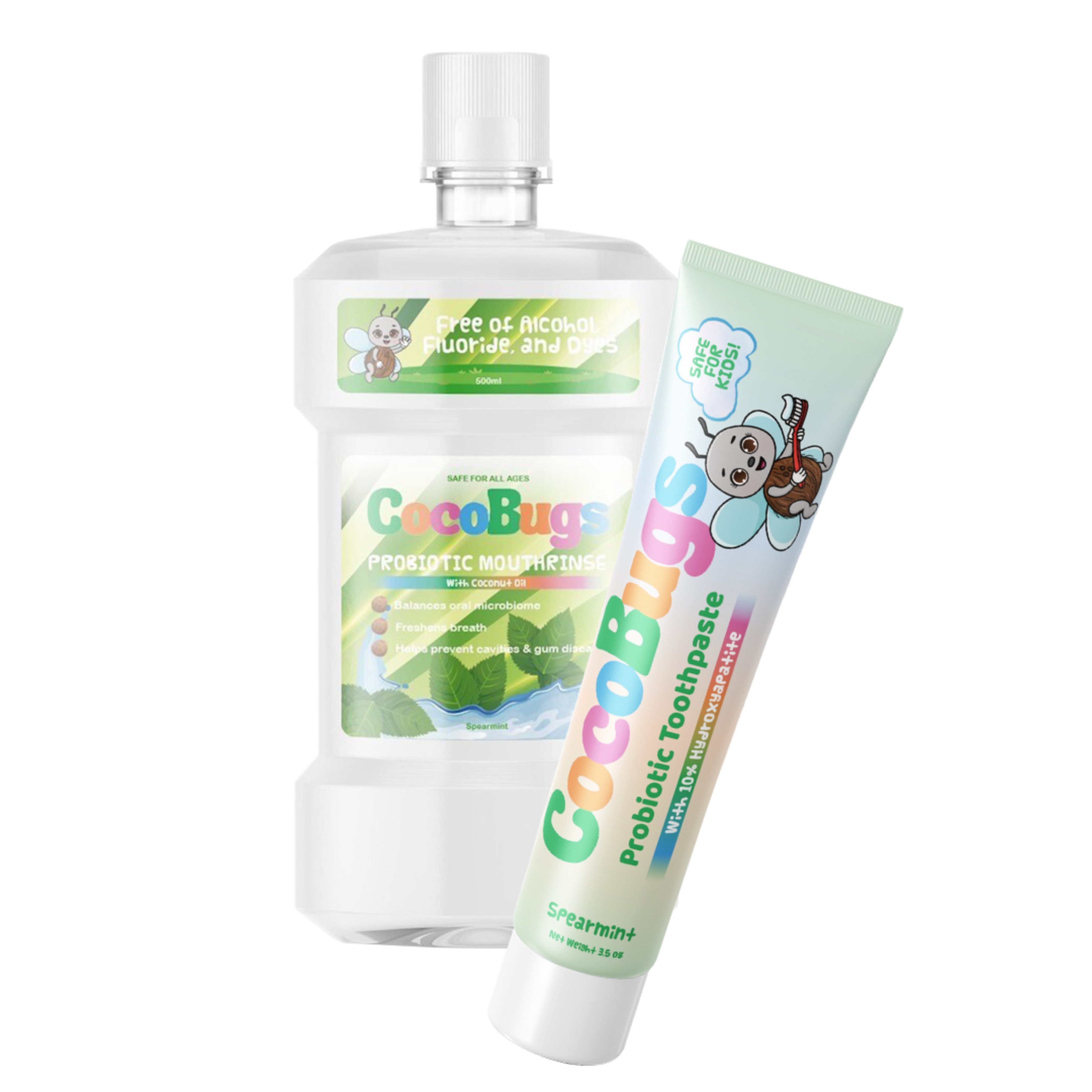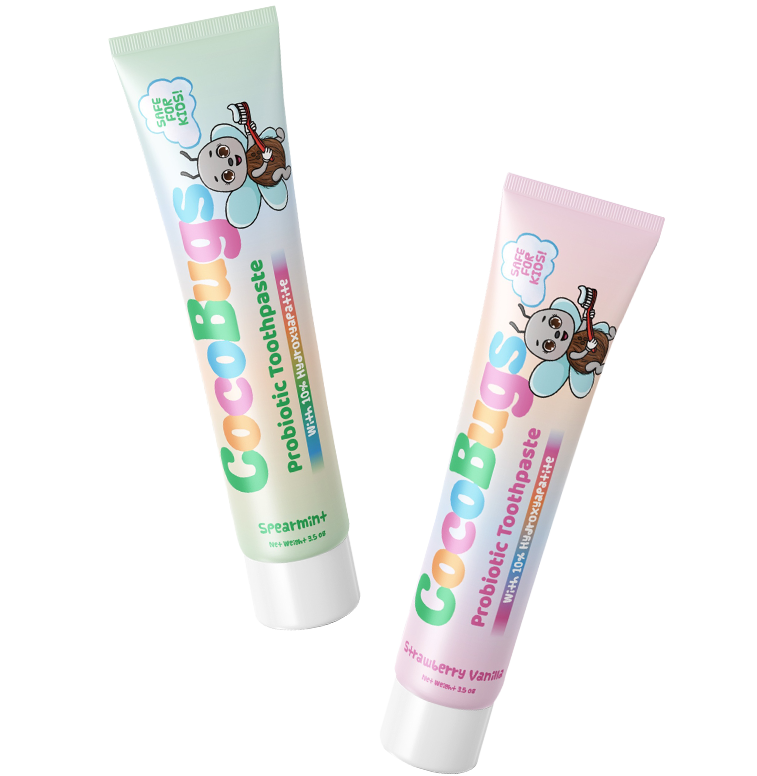


(antacid that removes plaque, food debris, and surface stains)


(mild and safe abrasive to remove plaque and surface stains)


(naturally sourced mineral that mimics enamel, remineralizes and strengthens teeth)


(anti-inflammatory and anti-bacterial properties, neutralizing effect)


(natural plant-based sugar substitute, reduces amount of harmful bacteria in mouth)


(freshens breath, antibacterial and anti-inflammatory properties)


(safe and naturally occurring strain, decreases amount of harmful bacteria in mouth)


(a safe foaming agent derived from coconut oil, helps to break down plaque and build up)


(A delicious and sweet alternative, contains trace amount menthol)






- can cause dental and/or skeletal fluorosis
- Controversies over neurotoxic effects, especially in infants and children under 6
- potentially related to thyroid problems
- mimic estrogen hormones
- carcinogenic, potential breast cancer risk
- Toxic and endocrine-disrupting properties, damage reproductive systems
- Endocrine disruptor, affects hormone function
- potentially carcinogenic
- may make certain bacteria resistant to antibiotics
- potentially carcinogenic
- Genotoxic effects observed in studies, raising concerns about potential harm to cellular DNA
- potential carcinogenic risks
- no health benefits
- natural sugar alternatives (xylitol) are healthier and can help prevent cavities
- Safety concerns, especially in oral care
- can cause ulcers and irritations in the mouth
- key component of antifreeze
- can damage nervous system, liver, and kidneys when consumed in large quantities
- Degraded form carcinogenic and inflammatory
- Contamination risks in approved "un-degraded" form
- Linked to hormone disruption
- potential carcinogenic effects linked to gene expression and nitrosamine formation
- can cause dental and/or skeletal fluorosis
- Controversies over neurotoxic effects, especially in infants and children under 6
- potentially related to thyroid problems
- mimic estrogen hormones
- carcinogenic, potential breast cancer risk
- Toxic and endocrine-disrupting properties, damage reproductive systems
- Endocrine disruptor, affects hormone function
- potentially carcinogenic
- may make certain bacteria resistant to antibiotics
- potentially carcinogenic
- Genotoxic effects observed in studies, raising concerns about potential harm to cellular DNA
- potential carcinogenic risks
- no health benefits
- natural sugar alternatives (xylitol) are healthier and can help prevent cavities
- Safety concerns, especially in oral care
- can cause ulcers and irritations in the mouth
- key component of antifreeze
- can damage nervous system, liver, and kidneys when consumed in large quantities
- Degraded form carcinogenic and inflammatory
- Contamination risks in approved "un-degraded" form
- Linked to hormone disruption
- potential carcinogenic effects linked to gene expression and nitrosamine formation



 rated 4.9 out of 5 by the cocobug family
rated 4.9 out of 5 by the cocobug family